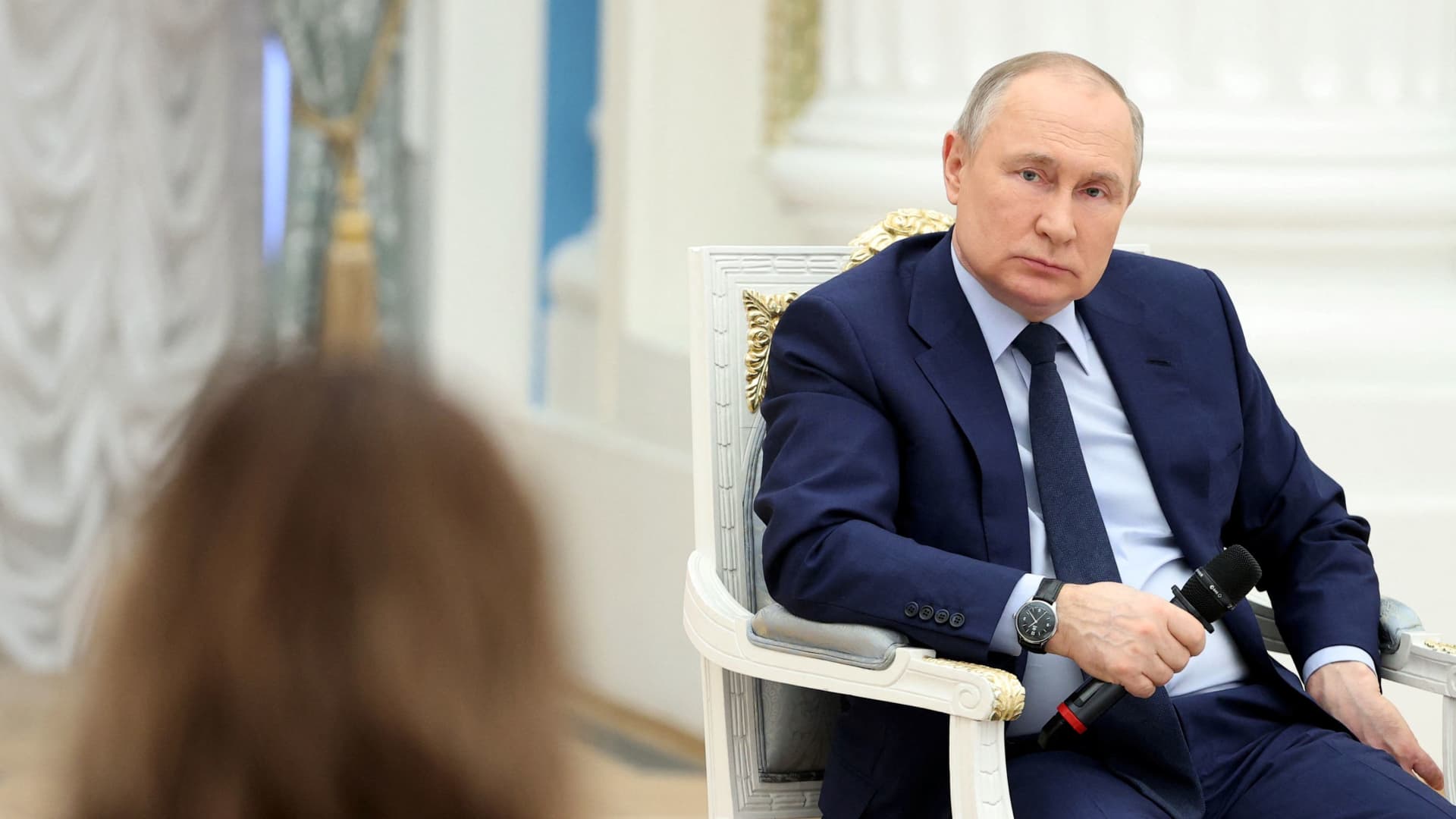Russia’s Finance Ministry said Friday that it had attempted overdue dollar payments on its international debt obligations, a dramatic U-turn which could potentially avoid a historic default for the country.
The ministry said it had made a payment of $564.8 million on a 2022 eurobond and a payment of $84.4 million on a 2042 eurobond, according to Reuters, with both in dollars — which was originally stipulated on the debt agreements.
The funds have reportedly been channeled to the London branch of Citibank but it’s unclear whether they will reach their intended recipients. The payments were due to be made in April and had entered a 30-day grace period before official default on May 4.
It had previously attempted to make the payments on its dollar-denominated bonds in Russian rubles.
Russian government bonds rallied on Friday afternoon after the news from the Finance Ministry. But close Moscow watchers like Timothy Ash, emerging markets strategist at BlueBay Asset Management, were unsure whether it would still be able to avoid a default.
“CDS committee [credit derivatives determinations committee] already ruled default so this is pretty extraordinary … bonds rallying hard … insane,” he said in a flash note Friday afternoon.
A spokesperson for the Treasury Department’s Office of Foreign Assets Control, or OFAC, was not immediately available for comment when contacted by CNBC.
Assets frozen
Around half of Russia’s vast foreign currency reserves have been frozen by punitive economic sanctions imposed by international powers in the wake of its invasion of Ukraine.
On April 4, Russia made a payment on the two sovereign bonds that are due to mature in 2022 and 2042 in the local currency rather than in dollars as mandated under the terms of its contract.
In a recent statement, ratings agency Moody’s said this deviation from the payment terms relative to the original bond contracts may be considered a default if not remedied by the end of the monthlong grace period on May 4.
“The bond contracts have no provision for repayment in any other currency other than dollars. Although eurobonds issued after 2018 allow under certain conditions for repayments to be made in rubles, those issued before 2018 (including the 2022 and 2042 bonds) either do not contain this alternative currency clause or allow for repayments to be made only in other hard currencies (dollar, euro, pound sterling or Swiss franc),” analysts from the sovereign risk group at Moody’s said.
The ratings agency said it did not believe investors obtained the foreign currency contractual promise on the due date for the payment.
S&P Global Ratings also downgraded Russia’s foreign debt credit rating to selective default after its April 4 ruble payment.
The attempt to pay in rubles came after the U.S. Treasury Department refused in early April a waiver for Russian payments to foreign bondholders to go through despite U.S. sanctions, a special permission it had previously granted in March.
The move prevented the Kremlin from paying holders of its sovereign debt with the more than $600 million of dollar reserves held with U.S. financial institutions. The aim was to force Russia to either use up more of its own stockpile of dollar reserves or accept its first foreign debt default in more than a century.
While sanctions imposed following Russia’s invasion of Ukraine had already frozen the Central Bank of Russia’s foreign currency reserves held with U.S. banks, the Treasury had allowed Moscow to use those funds on a case-by-case basis to meet coupon payment obligations on its dollar-denominated debt.
Historic default
Russia appeared to have averted a historic bond default in March, fulfilling interest payments worth $117 million on two dollar-denominated sovereign eurobonds after speculation that it may have attempted to pay in rubles.
Kremlin spokesperson Dmitry Peskov said at the time that any default would have been “purely artificial” because Russia had the funds necessary to fulfill its external debt obligations, but would be prevented from doing so by Western sanctions.
Default on Wednesday would be Moscow’s first on its foreign debt since the 1917 Bolshevik Revolution, and could trigger a messy period of legal squabbles.
Russian Finance Minister Anton Siluanov told the pro-Kremlin Izvestia newspaper last month that Russia will take legal action if forced into default by sanctions.
